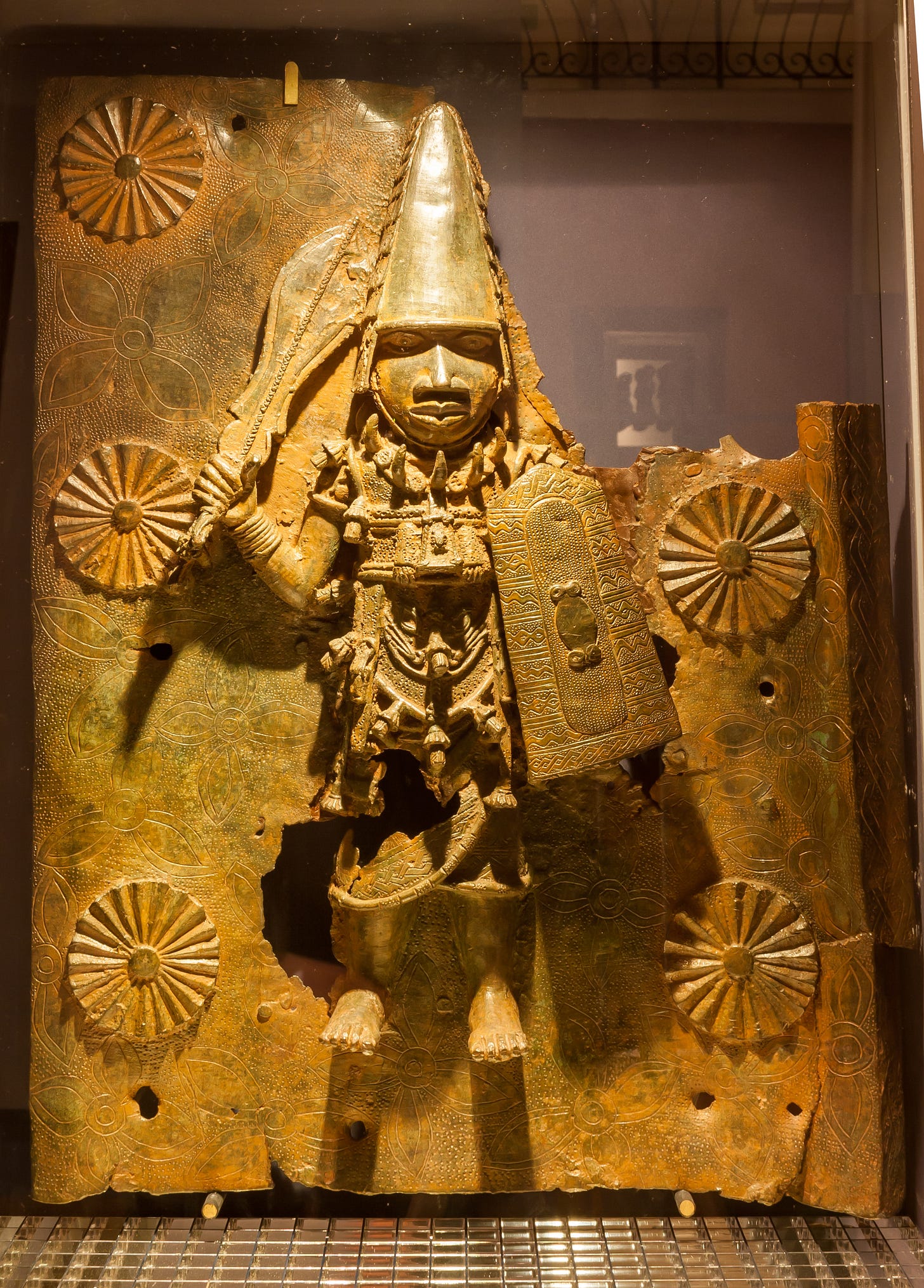🔅 The Singapore Economic Masterclass Missed by Africa & A Digital Heritage Reclamation
Plus, Insights from Italy's Africa Summit & Zimbabwe's Cholera Vaccine Drive
Photo of the Day

Brief & Bright: Africa's Top Five
Singapore's Economic Glow-Up: A Masterclass Missed by African Nations

Once upon a time, Singapore was looking up to African nations like Kenya for economic inspiration. Fast forward a few decades, and the tables have turned so much that the two regions don't recognise each other. Singapore, a tiny island nation, has transformed its per capita GDP from $4,214 in 1965 to $67,360. Meanwhile, sub-Saharan Africa has inched from $1,259 to $1,623.
African delegations regularly flock to Singapore, not for the food or the shopping, but to scribble notes on how Singapore did the economic equivalent of a superhero transformation. However, despite all the studying, the leaders seem to be leaving their homework at the bottom of the bag. Raila Odinga, Kenya's former PM, reminisces about how Kenya was an economic case study looked up to by Singapore back in the '60s. But now? African officials are returning from study trips there with lots of memories but little action.
So, what's Singapore's secret sauce? It's a mix of embracing history, making tough calls, and an obsession with details alongside meritocratic civil service. Corruption is a big no-no, and economic growth is the name of the game, always. Imagine this: if Africa had followed Singapore's growth path from the 1960s, it would be twice as wealthy as the global average. The key takeaway from Singapore's success story? Pragmatism in government. It’s not about the length of time since independence; it's about delivery.
Digital Benin's Mission to Reconnect Culture
Once upon a time, British forces played the ultimate unwelcome guests in the African kingdom of Benin, leaving with a loot of thousands of legendary Benin Bronzes - a collection of sculptures integral to the heritage of the Edo people. In November 2022, a project called Digital Benin was launched by the Museum am Rothenbaum in Hamburg, aimed at linking over 5,000 long-lost Benin Bronzes with their community.
It is an online catalogue that shows off these pieces with the Edo people’s language, names, and history. This platform isn't just for the desktop elite; it’s crafted for the mobile-savvy majority in Nigeria, making it a cultural swipe away for many. Anne Luther, a digital heritage specialist and the brain behind Digital Benin, envisions this as a blueprint for communities worldwide to digitally reclaim their pilfered past. Take a look at the catalogue here.
Italy's Africa Summit

Giorgia Meloni, Italy's prime minister, hosted a star-studded one-day Italy-Africa summit in Rome Monday, rolling out the red carpet for African dignitaries and European bigwigs. The agenda focused on boosting Africa's prosperity so that illegal immigration to Italy could eventually be dialled down. Moussa Faki, the chair of the African Union Commission, was all ears but made it clear Africa isn't holding out a begging bowl.
The summit, a who's who of 45 African nations plus Europe's top brass, was buzzing with talks of Meloni's "Mattei plan." Inspired by Enrico Mattei, Italy's oil guru of the 1950s, the plan pledges over €5.5bn for African investments in energy, education, health, and infrastructure. According to Meloni, it's Italy's way of saying, "Let's be equals, not charity cases."
Meloni also wants to position Italy as an energy hub, especially with Europe's cold shoulder to Russian gas. Conveniently, that means importing more natural gas from Africa, with which Eni (the energy company founded by Mattei) has a long-standing relationship.
Zimbabwe's Vaccine Campaign Against Cholera
Zimbabwe's latest headline is about a full-blown cholera vaccination campaign. The goal is to immunize 2 million people because the bacteria has killed 452 people in the past few months, with children making up half the victims. Already, over 892,000 doses are available, so health workers are hitting the ground running.
Cholera loves dirty water and poor sanitation, and is especially contagious in crowded urban areas. As a result, the government has limited public gatherings, kept an eye on food vendors, and even monitored burials.
Refugees Greening Nakivale: A Story of Resilience and Reforestation

In Nakivale refugee settlement in Uganda, a group of refugees, led by Burundian Enoch Twagirayesu, are changing the landscape, literally. Using simple hand tools, they've been planting pine tree seedlings for over six years, turning barren land into budding forests. Twagirayesu, who fled conflict in 2003, was moved to act after seeing the deforestation caused by the settlement's growing need for fuel and construction materials.
Today, over 180,000 refugees, primarily from the Democratic Republic of Congo, reside in Nakivale, intensifying the environmental strain. The settlement, once rich in forests, faced drastic deforestation, fueling Twagirayesu's drive to replenish the lost green cover. This reforestation effort, born from necessity, is transforming the ecological landscape, and the impact is visible. Areas once barren now thrive with over 460,000 new trees and may have brought back rain. This grassroots movement is a powerful example of how displaced communities can drive significant environmental change, turning adversity into a green revolution, one seedling at a time.
Food for Thought
“No matter how much the world changes, cats will never lay eggs."
— Kenyan Proverb




